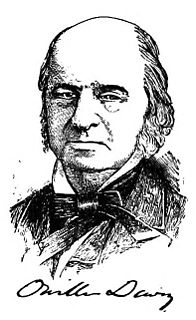A Quote by Charles M. Schwab
There is nothing a worker resents more than to see some man taking his job. A factory can be closed down, its chimneys smokeless, waiting for the worker to come back to his job, and all will be peaceful. But the moment workers are imported, and the striker sees his own place usurped, there is bound to be trouble.
Related Quotes
A willing, cheerful worker, with his heart in his job, will turn out more work and more satisfactory work in 44 hours than an unwilling worker, dissatisfied with his conditions, will turn out in 54 hours. It is good business, therefore, for every employer to go as far as he possibly can in reaching a schedule agreeable to his people.
Between labor and play stands work. A man is a worker if he is personally interested in the job which society pays him to do; whatfrom the point of view of society is necessary labor is from his point of view voluntary play. Whether a job is to be classified as labor or work depends, not on the job itself, but on the tastes of the individual who undertakes it. The difference does not, for example, coincide with the difference between a manual and a mental job; a gardener or a cobbler may be a worker, a bank clerk a laborer.
Without ambition one starts nothing. Without work one finishes nothing. The prize will not be sent to you. You have to win it. The man who knows how will always have a job. The man who also knows why will always be his boss. As to methods there may be a million and then some, but principles are few. The man who grasps principles can successfully select his own methods. The man who tries methods, ignoring principles, is sure to have trouble.
The picket line is the best place to train organizers. One day on the picket line is where a man makes his commitment. The longer on the picket line, the stronger the commitment. A lot of workers think they make their commitment by walking off the job when nobody sees them. But you get a guy to walk off the field when his boss is watching and, in front of the other guys, throw down his tools and march right to the picket line, that is the guy who makes our strike. The picket line is a beautiful thing because it makes a man more human.
The totalitarian states can do great things, but there is one thing they cannot do: they cannot give the factory-worker a rifle and tell him to take it home and keep it in his bedroom. That rifle, hanging on the wall of the working-class flat or laborer's cottage, is the symbol of democracy. It is our job to see that it stays there.
If there is any one proof of a man's incompetence, it is the stagnant mentality of a worker who, doing some small routine job in a vast undertaking, does not care to look beyond the lever of a machine, does not choose to know how the machine got there or what makes his job possible, and proclaims that the management of the undertaking is parasitical and unnecessary.
The fact that labour is external to the worker, i.e., it does not belong to his intrinsic nature; that in his work, therefore he does not affirm himself but denies himself, does not feel content but unhappy, does not develop freely his physical and mental energy but mortifies his body and his mind. The worker therefore only feels himself outside his work, and in his work feels outside himself.
There is no employing class, no working class, no farming class. You may pigeonhole a man or woman as a farmer or a worker or a professional man or an employer or even a banker. But the son of the farmer will be a doctor or a worker or even a banker, and his daughter a teacher. The son of a worker will be an employer - or maybe president.

































